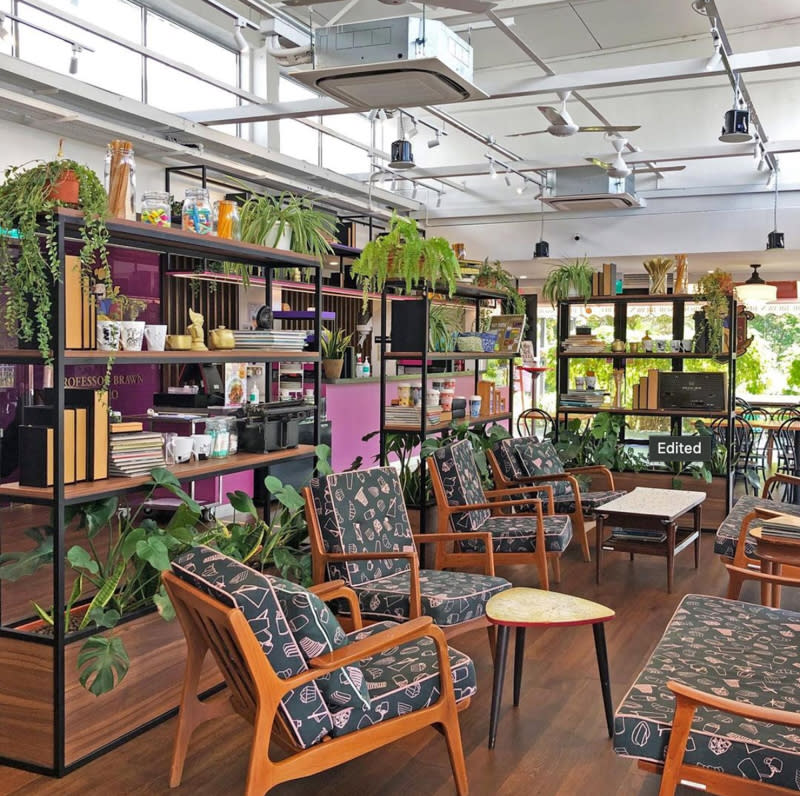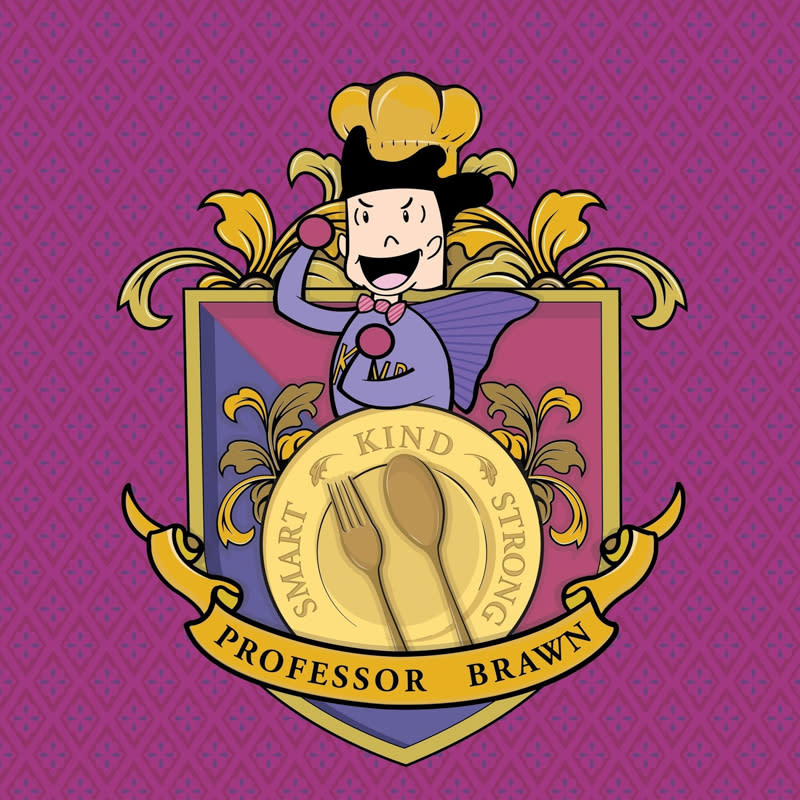One-on-one with Jacelyn Lim, Professor Brawn Cafe — “Differently-able people are different but not less”
It’s 2021, inclusivity and visibility are no longer just buzzwords but a lens we have to use to view and question everything around us. In the bright and shiny metropolis of Singapore, where we are obsessed with the rat race more than we care to admit, have we done enough to be a truly inclusive society?

Credit – Autism Resource Centre
If you are unsure of the answer, here’s a good start. In lieu of World Autism Day on 2 April 2021, we speak to Jacelyn Lim, Executive Director of Autism Resource Centre to learn more about autism in Singapore and how we can do more as a society.
Besides being one of the leading not-for-profit charity organisations, the Autism Resource Centre also runs the various Professor Brawn outlets across Singapore. Professor Brawn Cafe is more than just a cafe; it functions as a realisation of an inclusive workspace where they employ differently-abled individuals to fulfil the various roles. Such an endeavour does not come without its challenges, so here’s to more inclusive workspaces and a society that caters to all individuals.
Nicole Lam: What is the biggest misconception people have about autism in Singapore, and why do you think that is so?
Jacelyn Lim: There are several misconceptions about persons on the autism spectrum. Most are formed due to a lack of understanding about autism and its traits and lack of interaction between the public and individuals on the autism spectrum.
For example, some people think individuals on the autism spectrum avoid social contact. Individuals on the autism spectrum are often keen to make friends but find it difficult. Then, there is often this misconception that individuals on the autism spectrum cannot lead independent and successful lives.
Of course, that’s not true. Given the appropriate education, many will grow up to be successful contributors to society.
I’ve heard that there are some who believe autism can be cured.
Well, currently, there is no documented cure for autism. Children do not ‘outgrow’ autism, but the symptoms may lessen or change as they develop and receive appropriate interventions.
Individuals on the spectrum respond very well to structured early intervention, education and vocational placements that focus on the unique learning style of students with autism.
Compared to a decade ago, where are we now as a society in terms of understanding autism and what’s preventing us from pushing the needle further?
We are definitely more inclusive than compared to 10 years ago. In Singapore, it is gratifying to see how the various People, Public and Private sectors, have come together to empower and enable Persons with Disabilities (PwDs) through their policy-making and initiatives.

Most notably among these initiatives is creating the Enabling Masterplan and the formation of PwD-focused agency SG Enable. The awareness of the special needs community has also increased through initiatives such as the National Council of Social Service’s (NCSS) “See the True Me” campaign. Along with the ground-up movement of The Purple Parade, Singapore’s most significant movement to support inclusion and celebrate the abilities of People with Disabilities.
These initiatives ensure that People with Disabilities are included in the main chapter of Singapore’s growth and have equal access to education, employment, transport and social networks.
Of course, more can still be done to support persons on the autism spectrum. Some barriers that prevent us from pushing the needle further are how employers are not equipped with the knowledge or confidence to employ and develop the skills of PwDs.
Not to mention, PwDs have limited options for post-education work and face the “cliff-effect phenomenon” where service for SPED students drops to little or nothing after they complete formal school when they are 18.
To add to that, many programmes for adults operate at a loss. Social Service Agencies spend a lot of time and resources raising funds. It is time that can be better spent developing more programmes and services to meet the needs of persons on the autism spectrum and helping generate more awareness about autism within the community.
How important are social enterprises like Professor Brawn Cafe in the education of autism and other learning disabilities?

Social enterprises like Professor Brawn Cafe serve to foster social integration and showcase the abilities of PwDs in their various job roles in the context of an F&B establishment. By doing so, they dispel misconceptions that individuals on the autism spectrum, or with special needs, are unable to hold jobs or assimilate into the work culture.
By drawing on the strengths of persons on the autism spectrum and providing the proper training and support, enterprises like Professor Brawn Cafe demonstrate that persons with special needs can find gainful employment and lead independent and successful lives.
How do you view the impact social enterprises like Professor Brawn Cafe has on Singapore today?

In the current climate, persons with disabilities (PwDs) have limited work options, and few employers have the confidence to hire them.
Social enterprises like Professor Brawn offer authentic job training and employment that provide a more flexible job scope so that more differently-abled students and adults can access employment.
The enterprise also serves as a physical space to promote inclusion and build awareness of the special needs community. By spotlighting the abilities of persons with disabilities, we provide integration and interaction opportunities and open doors for financial independence for our differently-abled individuals.
Social enterprises also serve as a testbed and model for organisations looking to employ PwDs. Even so, they may not have the necessary resources (job coaches or disability-specific facilities) or the confidence to do so.
By providing a scalable, inclusive employment model, social enterprises like Professor Brawn have the capability of kickstarting conversations surrounding the employment of PwDs and inspire other organisations to follow in their footsteps.
What has been the worst thing you’ve heard someone say about the work you do at Professor Brawn Cafe, and how has that incident affected your approach to this cause?
To date, our customers have been very supportive and positive. They continue to embrace our vision of providing good food with a good cause and contributing to the community through word-of-mouth marketing and patronage.
Many of our customers who patronise Professor Brawn are unaware that more than 50% of the Professor Brawn team are individuals with special needs. This further strengthens our belief that with proper training and support, many people on the autism spectrum and other special needs can perform as well, or if not better than their neurotypical counterparts.
What are your hopes for Singapore as a society with regards to autism and differently-abled individuals?
Our hope is for Singapore to be a more inclusive society. Beyond just awareness and support for differently-abled individuals, we need greater acceptance of their strengths and abilities. We also need action from the public to be actively involved in creating a more inclusive society.
As we always say, persons on the autism spectrum are “Same, same but different; different but not less.” We hope to support every unique individual and help them maximise their potential and contribute to society.
If you would like to pay a visit to Professor Brawn Bistro, you’re in luck. There will be a 1-Day Flash Deal coming up later this month, where you can enjoy Professor Brawn’s bestselling Battered Fish & Chip Snackers at only S$2. Make sure you follow Professor Brawn on their Instagram and Facebook pages for more information.
This is limited to the first 300 customers, so mark your calendars!
Other articles you might like:
PROFILE: Cheryl Koh, Les Amis — “A good dessert has the undeniable ability to make people smile.”
Inclusivity’s the name of the game at Dignity Kitchen, built for differently-abled people
The post One-on-one with Jacelyn Lim, Professor Brawn Cafe — “Differently-able people are different but not less” appeared first on SETHLUI.com.

